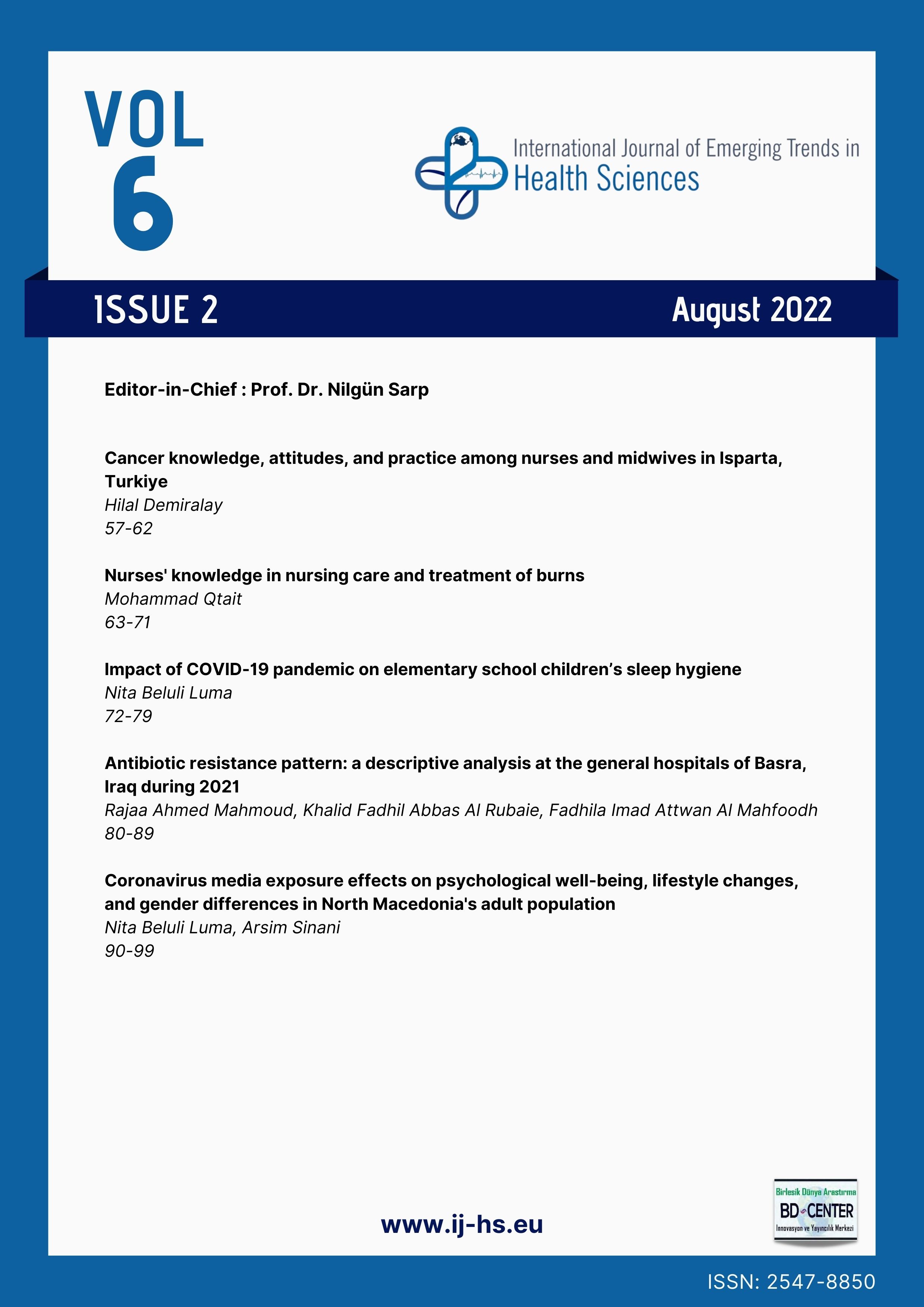Impact of COVID-19 pandemic on elementary school children’s sleep hygiene
Main Article Content
Abstract
The effect on sleep in elementary school-age, healthy children during the pandemic has been studied in various online survey studies with varied conclusions. However, no research study has been conducted in North Macedonia to examine the impact of the pandemic on the prevalence of sleep problems among elementary school-age children. Therefore, the present study is focused on exploring sleep patterns, sleep disturbances, and other associated factors during the COVID-19 pandemic outbreak in elementary school children. Approximately 85 respondents were surveyed from a public elementary school in North Macedonia. The Children Sleep Habits Questionnaire was used to assess children's sleep habits. From the research, we were able to conclude that children aged 7-8, are more prone to experiencing few sleep subscales that relate to common sleep problems such as bedtime resistance, sleep anxiety, night waking, and parasomnia while children at aged 10-11 would perform more sleep onset delays than younger ones.
Keywords: children's mental health, sleep patterns, sleep health, sleep disruptions, COVID-19.
Downloads
Article Details

This work is licensed under a Creative Commons Attribution-NonCommercial-NoDerivatives 4.0 International License.
Authors who publish with this journal agree to the following terms:
- Authors retain copyright and grant the journal right of first publication with the work simultaneously licensed under a Creative Commons Attribution License that allows others to share the work with an acknowledgement of the work's authorship and initial publication in this journal.
- Authors are able to enter into separate, additional contractual arrangements for the non-exclusive distribution of the journal's published version of the work (e.g., post it to an institutional repository or publish it in a book), with an acknowledgement of its initial publication in this journal.
- Authors are permitted and encouraged to post their work online (e.g., in institutional repositories or on their website) prior to and during the submission process, as it can lead to productive exchanges, as well as earlier and greater citation of published work (See The Effect of Open Access).
